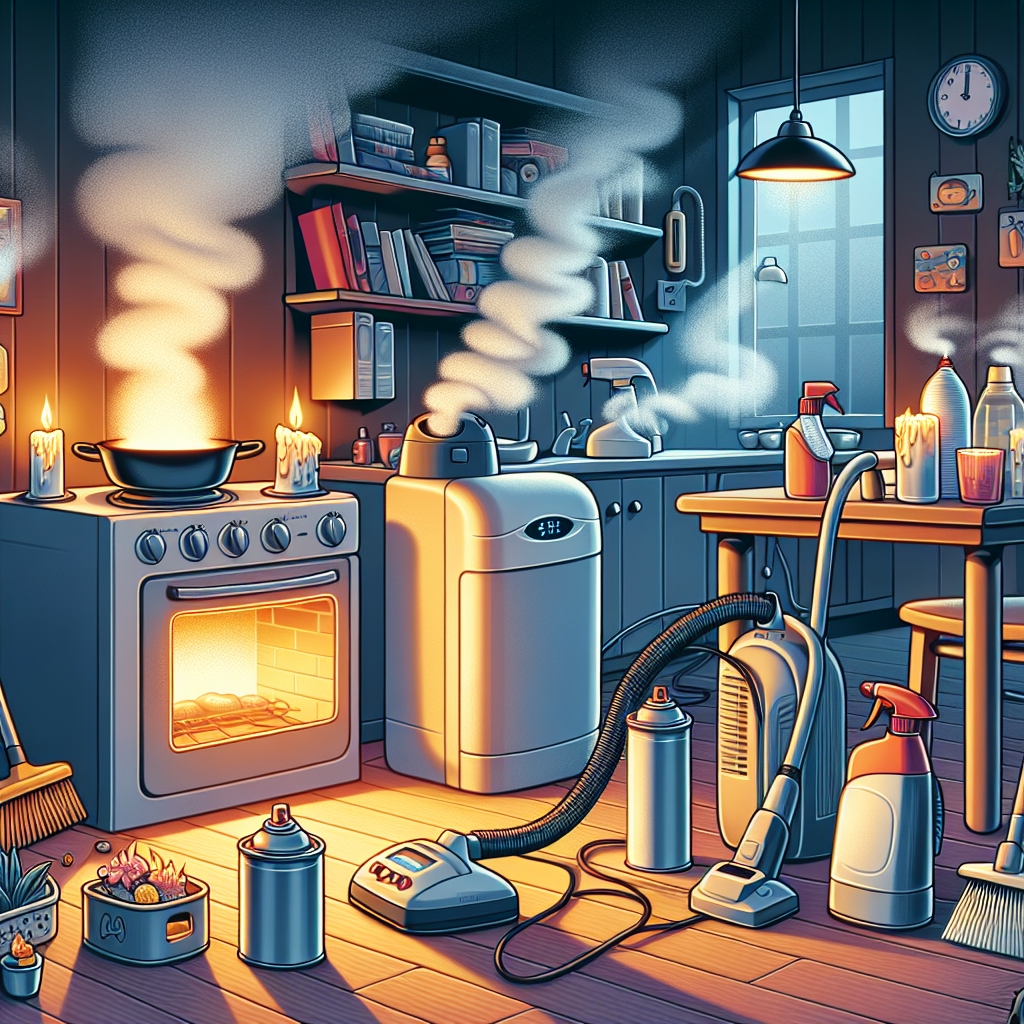Indoor Air Quality in Crisis: Household Items Worsening Pollution Threaten Our Health
Date: October 28, 2024
By: [Your Name]
Time: 07:00 PM IST
As air quality declines in cities across India, indoor air pollution has emerged as a pressing concern, often overlooked by many who believe they are safe within the walls of their homes. Recent insights from health experts reveal that the air we breathe indoors can be more contaminated than that outside, highlighting an urgent need for awareness and action.
Dr. Sanggita Checker, a Consultant Chest Physician at Wockhardt Hospitals, emphasizes that the relationship between indoor and outdoor air quality is intricately linked. “Indoor air pollution is often an unseen threat that can significantly impact one’s health and well-being,” she explains. Given that many people spend the majority of their time indoors, recognizing this can be pivotal for both individual health and community welfare.
Research indicates that common household items condense volatile organic compounds (VOCs) and particulate matter (PM) into the air we breathe, leading to respiratory disorders and cognitive decline. The alarming revelation is that indoor air pollution can be two to three times deadlier than outdoor pollution. This truth invites us to reflect on our choices and the impact those have on our surroundings and ourselves.
Common Household Culprits: A Call for Awareness
A selection of household items notably deteriorates indoor air quality, including:
- Cleaning Products: Many cleaning solutions contain VOCs that linger in the air long after use, deteriorating air quality rather than improving it. Although they serve a purpose, their efficient cleaning often comes at a considerable cost to our respiratory health.
- Carpets and Furniture: Items treated with flame retardants and chemicals such as formaldehyde can contribute to indoor air toxicity.
- Gas Stoves: Utilizing gas stoves without adequate ventilation releases nitrogen dioxide and other pollutants.
- Incense Sticks: Surprisingly, burning incense sticks is also linked to increased indoor pollution.
Tony Palmer, the environment and health advocate, suggests that we should regulate the use of these products, especially when outdoor air quality is at its worst. Just as Jesus taught about stewardship, we are called to care for our environment and our bodies, recognizing that they reflect the light of God’s creation.
A Biblical Perspective on Stewardship
The call to care for our environment aligns with biblical principles, reminding us of our responsibility to be good stewards of what we have been given. In Genesis 2:15, we read, "The Lord God took the man and put him in the Garden of Eden to work it and take care of it." This scripture highlights the importance of maintaining and nurturing our surroundings.
As we navigate the complexities of modern life, it is essential that we integrate care for our physical environments into our spiritual lives. Choosing non-toxic cleaning products, ensuring proper ventilation, and being mindful of the materials in our homes speaks to our commitment to living in harmony with nature and each other.
An Encouraging Takeaway
In an ever-changing world, we can transform our homes—our inner sanctuaries—into healthier spaces that honor both our bodies and God’s creation. By being aware of the common household items that contribute to indoor pollution and actively working to mitigate their impact, we not only uphold a standard of living but also embody the spirit of stewardship.
Reflecting on our choices can lead to greater awareness, leading ultimately to healthier lives and homes filled with peace. “For I know the plans I have for you,” says the Lord in Jeremiah 29:11, emphasizing our divine purpose in nurturing ourselves and the world around us. Let us strive to foster environments that support vibrant health and well-being, both physically and spiritually.
Explore and dig up answers yourself with our BGodInspired Bible Tools! Be careful – each interaction is like a new treasure hunt… you can get lost for hours 🙂


